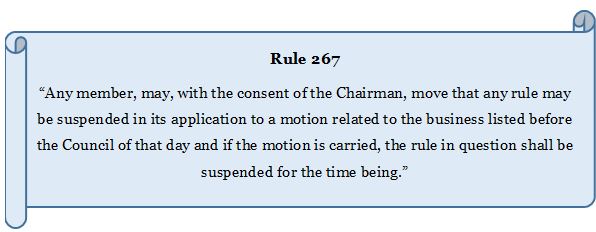7667766266
enquiry@shankarias.in
The Opposition’s demand for a ‘Short Duration Discussion’ under Rule 267 to take up the Manipur issue was declined in Rajya Sabha.

Not a single notice under the rule 267 moved by the Opposition has been accepted in the last Winter Session of the Parliament.

On the first day of the monsoon session while the Opposition wanted to discuss Manipur under the Rule 267, the government was ‘keen and agreeable’ for discussion under Rule 176 said the RS Chairman.